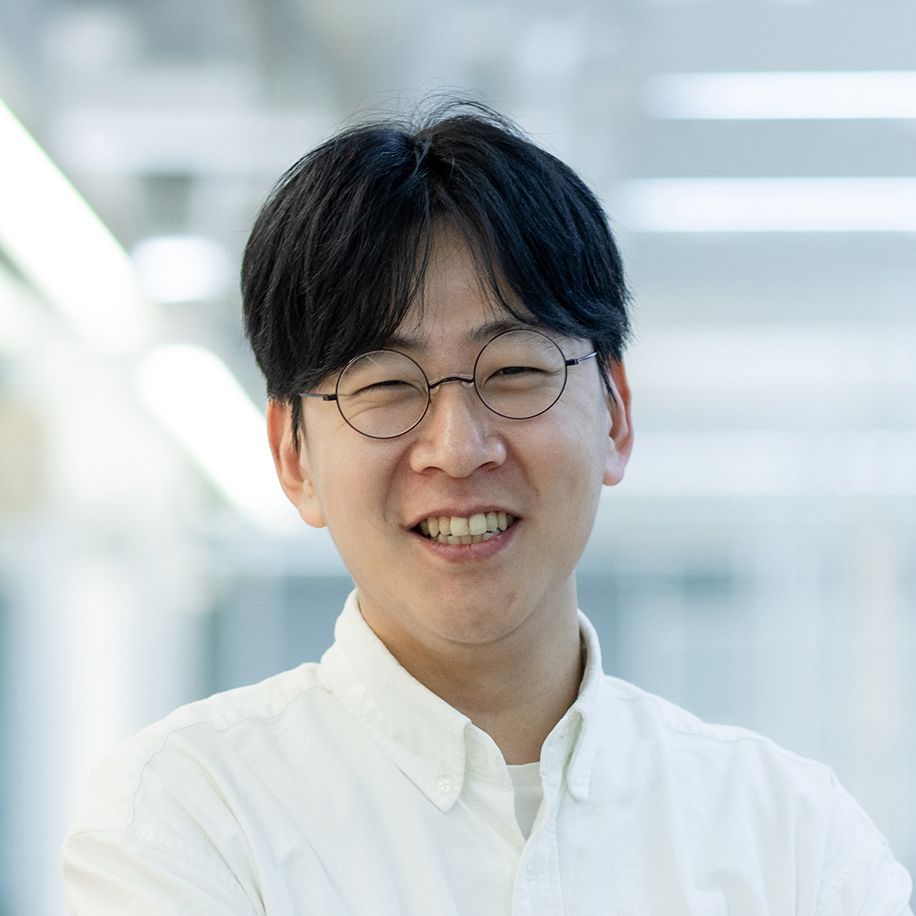Meet the Global LINERs
Engineering
SeungHeun Noh / DevOps Engineering / LINE Plus
Seung-Heun joined LINE after working as a Content Delivery Network (CDN) engineer at a global technology platform company, with the goal of experiencing everything about LINE firsthand. Today, he engages in traffic management to ensure stability for the LINE messenger service. Throughout this interview, his passion as a DevOps engineer and strong self-esteem about his role and the team were palpable. So, let’s listen to Seung-Heun!
A quick three-line summary
- Seung-Heun is in charge of stability management for LINE Messenger’s global traffic.
- He enjoys experiencing and thinking about new technology trends to make tomorrow better than today, even if it is a little bit.
- After failures or outages happen, he focuses on how to prevent a recurrence rather than looking for someone to blame for the problem, and aims to get healthy feedback to continue growing.
About Work
Q Please introduce the LINE Reliability Engineering division and your job responsibilities.
The Reliability Engineering function provides solutions for the software and systems that support all the services and infrastructures LINE uses to operate stably and reliably. That involves developing automated tools for organically connecting our internal engineers’ service development, release processes and traffic monitoring, to allow the smooth operation of our services and to prevent service interruption, as well as to serve as the communication hub during the recover process when an outage happens. All this involves working together as a group of DevOps and SRE (Site Reliability Engineering) engineers with expertise in a range of fields. The team also collaborates with multiple internal teams for ensuring service stability and serving as the PM for LINE’s “New Year Response,’ our heaviest rush of traffic of the year. My function serves as the hub, not only for DevOps or development, but also for planning, infrastructure, and business areas, as well as creating systems and tools and ensuring they’re all operating stably. For example, for a company as big as LINE, we develop plenty of new code every day. One of our main roles as a hub is offering and operating CI (Continuous Integration) tools so that each feature Dev makes is well integrated into LINE platform, and providing a CD (Continuous Delivery) platform and monitoring system so that service updates are regularly offered to users. Among all those responsibilities, my main task is being in charge of global traffic and providing tech and consulting services to guarantee high performance, efficiency and user safety. Internally, I collaborate with the Media Platform Team, one of LINE’s key organizations for improving the user environment so that users can receive media content (images, videos, etc.) faster and in a more stable manner.
Q And what’s your usual work schedule like?
I mostly work from home. When I do go to the office, the first thing I do is to monitor any irregularities in LINE’s global traffic. I check whether there are any issues in specific regions of LINE’s major territories, including Japan, Taiwan, Thailand, and Indonesia. Next, I check whether there are any reported failures or notifications on the key internal communication channels. If I find an issue in need of a response, I get together with the service managers to analyze the data and discuss solutions. In addition to these major responsibilities, I also have side projects. At LINE, you can voluntarily propose and promote side-projects if you have any ideas to raise the overall service and internal work efficiency. So, I am working on SSL (Secure Sockets Layer) certificate used in LINE’s management system development. As LINE is a global company, I work with multiple organizations that need this system, including Security, the Infra Teams in Korea and Japan, and Verda, LINE’s Cloud Platform.

Q What’s a project that really enabled you to grow?
There was a project we worked on at the request of one country’s largest telecom, asking us to apply IPv6 to LINE Messenger because LINE’s global traffic is so big. For the Dev function, offering IPv6 was not then a high priority because it did not have a huge impact on service development. I barely had any prior knowledge of IPv6, but I decided to take part in the project because of its potential long-term effects, including managing overall LINE traffic stability and the relations with external platforms. In the beginning, we spent a lot of time explaining why the project was necessary for the service development function, but after three years, we finished the project successfully. It was a pretty long project and we went through some tough times, but it was an opportunity for me to learn about IPv6, improve myself, and grow, giving me a better perspective on LINE’s global traffic control.
Q What about your work is especially “global”?
LINE has approximately 200 million global users, which means a huge amount of traffic, which means I always have to focus on how well our services are provided to end-users. We have two major goals in traffic management. First, how users feel about the performance. It is very important to choose the technology and platform that make LINE faster and easier to use, and consistently monitor and manage that environment. Second, managing and controlling the traffic to ensure the stability of LINE’s overall infrastructure. Neither of these can fail, so it is vital to strike a good balance. Another important part of my work is working closely with colleagues around the world. At LINE, there are all sorts of projects and business entities in Korea and Japan, as well as Taiwan, Thailand, and other locations. It’s not just about localizing the products we make in the head office, but planning and developing services in each of those local offices. I’ve noticed that when an issue occurs while using the CDN, which operated by our team, or our in-house network platform, the regional teams sometimes don’t know who to contact. So, when I collaborate with global team members, I try to check as much as possible with the information I have and act as a gateway connecting them with the right experts when necessary. I also try to be as helpful as I can when it comes to things like that can only be quickly checked locally, such as testing or market conditions.

Challenges and Failures
Q They say we learn more from our failures than our successes. Tell us about one or two of your failures.
As an engineer, you inevitably encounter failure. Some failures are caused entirely by your own small mistakes. In my case, since I am in charge of traffic, one small mistake can have a significant impact. (Laughter) I think the most likely time to have a failure is when you fall into routine. I have one or two disappointing failures every year, but what’s more important is how you deal with them. You can’t just beat yourself up. I think the only way to grow and improve is to quickly admit your mistakes, find the cause, and think more intensely about how to systematically address the issue so the same failure does not happen again.
Q What do you think “challenges” mean to LINE engineers?
For me, a challenge means never settling for the status quo and striving to be a better me each day. Especially in IT services, technologies change very quickly and the field is a very trend-sensitive. LINERs are always alert for more stable and complete services. When new technologies come out, we’re always curious about them and talk about them together. Personally, I like to say "Let's just take a bite." (Laughter) Even if I don't dive into it right away, I keep tasting it and thinking about how to use it. I believe the foundation for a better service starts from tackling challenges piece by piece.
Thoughts on competencies
Q What competencies and qualities do you think are necessary to perform well in your job?
In fact, the term "DevOps" is bound to have different interpretations depending on the company, organization, and person. Depending on whether you are a developer, infrastructure engineer, or operations engineer, there are many ways to define it. After all, the scope of DevOps is very broad, and the boundaries can be blurry. At LINE, a DevOps engineer plays a role as a "hub," filling the needs of each related department across all areas of the business — not only development, but also business, planning, and infrastructure. So, I think it's important for DevOps engineers to have a deep knowledge of a specific technology field, but it's also important to build interest and experience in a wide range of technologies. Technology used yesterday may not be used today, and what is not here today may be here tomorrow. Since technology trends change fast, you need to be constantly engaged and learning how to use them yourself, so that you can find a way to respond to issues or problems that you find in your work without panicking. If you have graduated from school and have already started working, I think it will be helpful to pay attention to what platforms and technologies are being used by the various organizations within the company and what problems they face. Also, these days, there are a lot of external educational platforms and high-quality video content, so I think it is essential to try to learn and understand a lot. Of course, the ability to find relevance and insights from such a variety of information and scattered data is also important. Lastly, I think it is also important to have the attitude of carefully paying attention to little alerts and notifications, since a big failure might occur when you think "It's not a big deal."

Stories about a special experience at LINE
Q Do you have any memorable or surprising moments while working at LINE?
What surprised me the most after joining LINE was that there was no culture of blaming someone when something goes wrong, and no one was doing that. Instead, we all focus on pooling our thoughts and working to quickly resolve the situation. In one of my previous jobs, the main purpose of a failure review meeting was to write a report or come to a conclusion to hold someone accountable. At LINE, however, we don't do that. Rather, we discuss such topics as "Why did this happen?", "How can we prevent it from recurring?", and "How about responding like this?" It was a new experience for me. My colleague finds the part I missed and learns through that process. I really liked the experience of sharing my failures with my colleagues and receiving feedback like this, and it has been an opportunity for me to continue to grow after joining the company. Of course, there were parts of the work here that were difficult to adapt to. I thought I knew a lot about LINE, but when I joined the company, there were so many things I did not know and so much to learn. (Laughter) LINE has a lot of openness when it comes to information compared to other companies. You can get information about what other organizations are doing and how they are doing through channels, or you can attend meetings directly. I was invited to a meeting and happily participated in it, but there have been times when I felt frustrated because so many different technologies and platforms were being used. The amount of technology and information to learn was overwhelming, but I started studying hard by taking notes and began to understand the systems step by step. It was hard at first, but later I got the hang of it and developed the ability to sort out the information I needed. It is an environment where you can gain two or three times more experience and knowledge compared to other places if you are willing to put in the work.
Wrap-up
Q What would you say to those interested in this position?
If you are interested in IT services and LINE, I do not think there is any other job where you can experience as many different things as DevOps! It is the job I'd like to recommend the most, but it's also the most challenging one. It is not just about development. You also need to have a lot of knowledge in different areas, from development to planning to infrastructure. However, you can shine in a specific area that you are good at while contributing to improving the quality of service as whole. Join us at LINE and don't miss out on the experience of challenge and growth!




